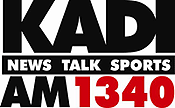
When the Dallas Cowboys play their first game here later this year, team owner Jerry Jones might have a temporary name for his stadium and a lot less cash than he expected.
When the Dallas Cowboys' new stadium opens in June, there may not be a corporate sponsor attached to its name. 'Chances are, there are offers, but they are coming in well below what the Cowboys want,' said naming rights consultant Terry Burton, who is not involved with the negotiations.
A naming rights deal to add hundreds of millions of dollars to his bottom line hasn't materialized, and sports business professionals said Jones might not find a sponsor this year unless he's willing to offer a deep discount. Even optimistic naming rights consultants are saying that a blockbuster deal is probably off the table in this year of economic turmoil.
"Chances are, there are offers, but they are coming in well below what the Cowboys want," said naming rights consultant Terry Burton, who is not involved with the negotiations.
He said the Cowboys would be best served by waiting for the economic downturn to "play out." Burton, owner of Vancouver, Canada-based Dig In Research 2007 Inc., which evaluates sponsorship and philanthropic naming rights deals, said he believes the market could bounce back to previous levels in time for Super Bowl XLV in Arlington in 2011.
However, such a delay means that a sponsor would miss all the publicity surrounding the opening – such as concerts, large-scale tours and other high-profile events – as well as national attention when the Cowboys play their first regular-season game in Arlington.
Cowboys spokesman Brett Daniels declined to comment about naming rights negotiations for the $1.1 billion stadium, which is projected to open June 1. Team officials, including Jones, also have declined to discuss specifics in the past.
Daniels also would not say what the team would call the stadium if a naming rights deal weren't in place when it opens.
AT&T officials, who have been rumored to be interested in the stadium's naming rights, said they have not signed a deal with the Cowboys. Sarah Andreani, spokeswoman for the telecommunications giant, said several high-profile stadiums are opening soon, and "we have been approached about most of them."
She declined to say whether AT&T was negotiating with the Cowboys.
AT&T is among the world's biggest corporate advertisers and spent about $1.3 billion to promote its brand last year. Its name can be found from the San Francisco Giants' baseball stadium to the AT&T Cotton Bowl Classic to the AT&T Center in San Antonio, home of the Spurs.































